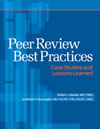All Articles
Addiction Issues & Substance Abuse
Food & Beverage
Alternative Dispute Resolution (ADR)
Foot / Ankle Surgery
Animals
Foster Care / Foster Home
Antitrust
Human Resources
Audio Forensics
HVAC - Heating, Ventilation, Air Conditioning
Aviation
Industrial Equipment
Banking
International Trade
Blockchain Information
Internet Marketing
Business Development
Land Mapping - Surveying - Zoning
Cancer & Oncology
Linguistics
Coins
Maintenance
Commercial Diving
Marine - Maritime
Communication
Medical Malpractice
Conveyor Belts
Medical Practice Management
Crisis Management
Meditation
Documentation Examination & Analysis
Meteorology
Domestic Violence
Microbiology
Education & Schools
Plants & Trees
Energy - Utilities
Pools and Spas (Recreational)
Engines (Combustion - Diesel)
Professional Skills
Ergonomics
Research Methodology
Family Issues
Securities
Film & Entertainment Industries
Social Issues
Finance
Speech-Language Pathology
Fires & Explosions
Structured Settlements
More...

HEALTHCARE-PAGE ARTICLES MAIN PAGE
. Contact Us if you are interested in having your work published on our website and linked to your Profile(s).
All Articles
Accident Prevention & Safety
HVAC - Heating, Ventilation, Air Conditioning
Aftermarket Services
Hyperbaric Medicine
Alcohol, Tobacco & Other Drugs
Immigration - Naturalization - Asylum
Automotive - Vehicular
Insurance
Boating
Internet Marketing
Casinos - Gambling - Gaming
Languages
Child Witch Phenomenon
Life Expectancy - Life Care Planning
Coins
Logistics - Reverse Logistics
Construction
Machinery
Design
Manufacturing
Digital Forensics
Mediation
DNA (Deoxyribonucleic Acid)
Medical Malpractice
Emergency Medical Services (EMS)
Medicine
Engines (Combustion - Diesel)
Patents
Exercise & Fitness
Pharmacy & Pharmacology
Expert Witnessing
Real Estate
Eyewitness Testimony
Regulations and Codes Standards
Fall Protection Solutions / Confined Spaces Safety
Research Methodology
Feng Shui
Restaurant Industry: Operations & Development
Film & Entertainment Industries
Slip, Trip & Fall
Forensics
Social Psychology
Forgery & Fraud
Structured Settlements
Foster Care / Foster Home
Surveys
Fuel Systems
Vocational Rehabilitation And Counseling
GIS - Geographic Information Systems
Warnings & Labels
More...
Featured Articles
There are no active articles here at this time. Please use the search bar, try another category, or contact us if you would like to contribute an article.
This Article is unavailable. Contact Us
Search articles by title, description, author etc.
Sort Featured Articles
Featured resources
Legal Blacksmith: How to Avoid and...
by Rosemary Coates, et al
Peer Review Best Practices: Case...
by Jon Burroughs, MD, et al
Chromium(VI) Handbook
by James A. Jacobs, et. al (eds.)
Follow us










